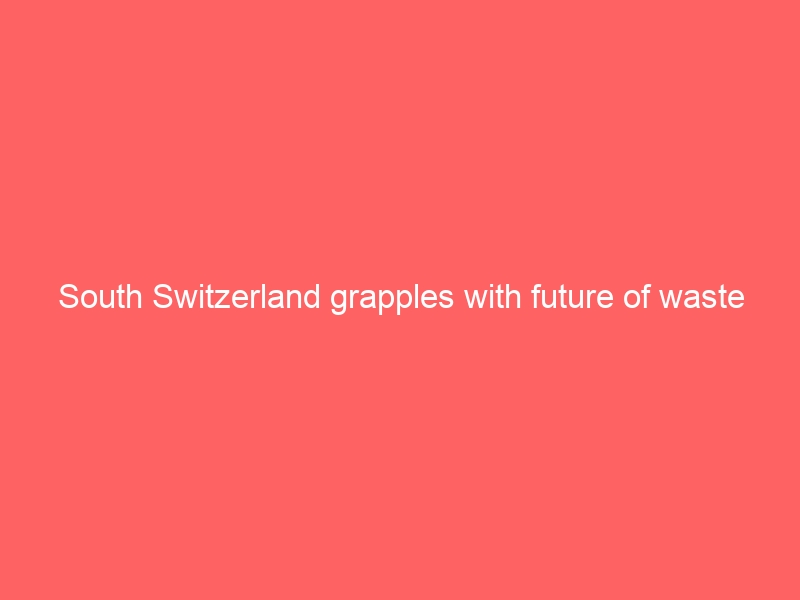The picturesque region of South Switzerland, known for its stunning mountains and crystal-clear lakes, is currently grappling with the future of waste management. With landfills reaching capacity and environmental concerns rising, the region is turning to incineration as a potential solution for its waste problem.
Incineration, the process of burning waste at high temperatures to produce energy, has been a divisive issue in South Switzerland. Proponents argue that it is a sustainable way to manage waste and produce electricity, while opponents raise concerns about air pollution and toxic emissions.
At the heart of the debate is the growing amount of waste generated in the region. With a high standard of living and a robust tourism industry, South Switzerland produces a significant amount of waste each year. Landfills are quickly filling up, and the region is faced with the challenge of finding alternative waste management solutions.
Proponents of incineration argue that it can help reduce the volume of waste and minimize the need for landfills. They also point to the potential for energy generation through the process, which could help reduce reliance on non-renewable energy sources. Additionally, modern incineration facilities are equipped with advanced pollution control technology, which can help minimize harmful emissions.
On the other hand, opponents raise concerns about the environmental impact of incineration. They argue that the process releases harmful pollutants such as dioxins and heavy metals into the air, posing a risk to public health and the environment. There is also a fear that the region could become reliant on incineration, potentially hindering efforts to reduce waste generation and promote recycling.
In response to these concerns, South Switzerland is exploring alternative waste management strategies, such as increased recycling and composting. These initiatives are aimed at reducing the amount of waste sent to landfills and incineration facilities. Additionally, the region is investing in technology to improve waste sorting and separation, in order to maximize the recovery of recyclable materials.
Despite these efforts, incineration remains a topic of discussion in South Switzerland. The region is faced with a complex decision about the future of waste management, weighing the potential benefits of incineration against its environmental and health impacts.
As South Switzerland continues to grapple with the future of waste management, it is clear that a balance must be struck between the need to manage waste effectively and the importance of protecting the environment and public health. With careful consideration and continued investment in sustainable waste management practices, the region can work towards a more eco-friendly and resilient waste management system.






